Job Planning
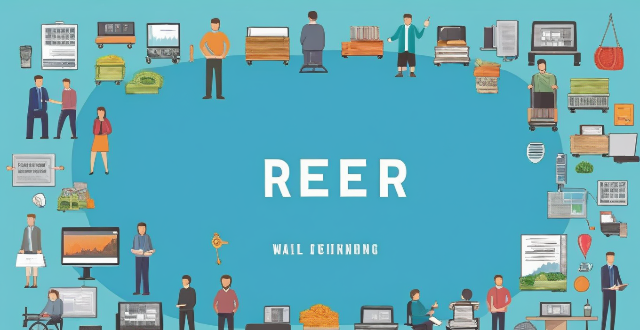
How can we ensure job security in an ever-changing employment landscape ?
In the ever-changing employment landscape, job security is a concern for many professionals. To maintain job security, strategies such as continuous learning, adaptability, networking, performance orientation, personal branding, career planning, financial planning, and mental health management are recommended. These approaches can help professionals stay relevant, demonstrate value, build a positive image, set clear goals, save for emergencies, manage stress, and seek support when needed. By implementing these strategies, individuals can increase their resilience and adaptability, enhancing their job security.
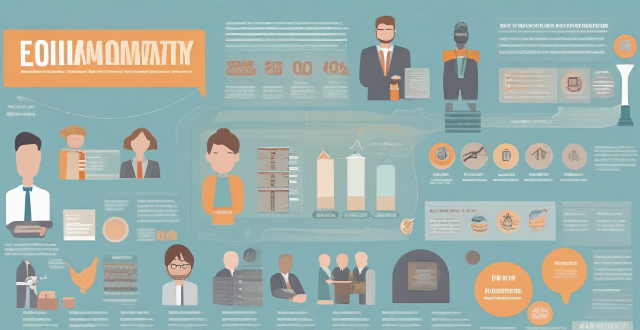
How does private equity impact job creation and retention ?
Private equity (PE) has a significant impact on job creation and retention, primarily through investing in underperforming companies, supporting startups and small businesses, and engaging in strategic acquisitions and mergers. PE firms also contribute to job retention by providing stable funding, investing in employee training programs, and participating in succession planning. While some argue that PE prioritizes short-term profits over long-term job growth, others contend that PE plays a crucial role in promoting economic stability and workforce development.

How does automation affect job security ?
Automation affects job security by increasing efficiency, causing job displacement, creating a skill gap, and generating new job opportunities. To mitigate its effects, individuals should continuously learn and adapt, while organizations should offer reskilling programs and implement progressive policies.

How has social distancing impacted the economy and job market ?
Social distancing measures have had a significant impact on the economy and job market, including decreased consumer spending, supply chain disruptions, high unemployment rates, increased demand for remote work, and changes in job seeking behavior.

How will AI impact the job market in the future ?
The impact of AI on the job market is multifaceted. While it brings opportunities for increased efficiency and novel professions, it also presents challenges related to job displacement, skill shifts, inequality, and the need for adaptive policies. The future of work in an AI-driven world will require a collaborative effort from individuals, businesses, and governments to navigate these changes effectively.
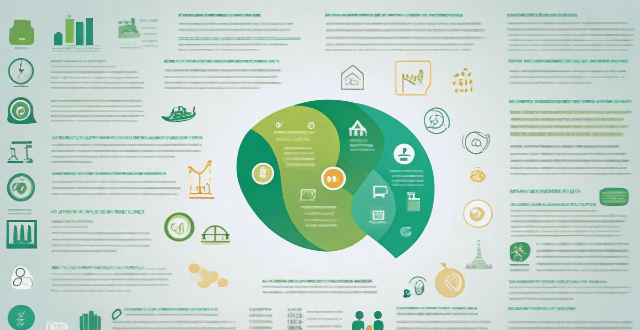
How will climate change influence future job markets ?
The article discusses how climate change will influence future job markets. It highlights the increased demand for green jobs, a shift toward resilient industries, and potential declines in certain sectors that contribute to greenhouse gas emissions or rely heavily on fossil fuels. Additionally, remote work opportunities may rise due to extreme weather events and environmental concerns. The article concludes by emphasizing the need for individuals and organizations to adapt to these changes in the job market.

How does tax planning affect a country's economy ?
Tax planning is a crucial component of any country's fiscal policy, as it affects various aspects of the economy, including government spending, investment decisions, and consumer behavior. Increased tax revenue can lead to higher government spending in critical sectors like healthcare and education, which can improve living standards and stimulate economic growth. Tax incentives can encourage businesses to invest in areas aligned with economic objectives, leading to job creation and technological advancements. Additionally, tax planning can influence consumer behavior by affecting prices, discouraging consumption of certain products, and promoting responsible spending habits. Overall, effective tax planning is essential for fostering economic growth, enhancing living standards, and promoting sustainable development.

How does climate change influence job security in coastal regions ?
Climate change significantly impacts job security in coastal regions through direct effects such as sea level rise, increased storm intensity, and changes in ocean temperatures. These environmental changes directly affect industries like fishing, tourism, agriculture, and infrastructure, leading to job losses or reduced hours for employees. Indirectly, climate change can cause economic displacement, public health concerns, and policy changes that create new job opportunities while potentially reducing jobs in other sectors. Addressing these challenges requires coordinated efforts from various stakeholders to adapt to changing conditions and transition towards more resilient economic systems.
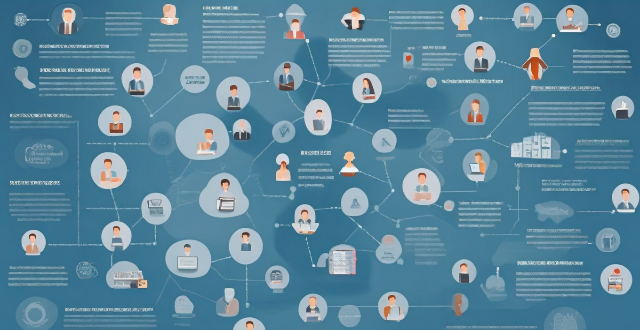
How might a lunar base influence the global economy and job market ?
The establishment of a lunar base could significantly impact the global economy and job market by increasing investment in space technology, creating new industries, driving innovation, and fostering international collaboration. It could also create numerous job opportunities and expand educational opportunities focused on space-related disciplines.

How important is meal planning for maintaining a healthy diet ?
Meal planning is crucial for maintaining a healthy diet, as it allows for improved nutritional intake, time management, cost savings, and stress reduction. To implement meal planning effectively, set realistic goals, create a weekly plan, involve family members, keep it simple, and use technology to simplify the process. By following these tips, you can achieve a healthier lifestyle through effective meal planning.

What are the job prospects for fitness instructors ?
The fitness industry is experiencing steady growth, driven byThe fitness industry is experiencing steady growth, driven by of regular exercise, rise in This growth has led to a rise in job opportunities for fitness instructors across various settings such as gyms, corporate wellness programs, community centers, and online platforms. Fitness instructors can also expect career growth through specialization, certification, management, or entrepreneurship. Overall, the job prospects for fitness instructors are promising with numerous opportunities for career advancement.

How do climate goals affect the economy and job market ?
Climate goals, aiming to reduce greenhouse gas emissions and promote renewable energy sources, significantly impact the economy and job market. The growth of the renewable energy sector creates new business opportunities and jobs, while carbon pricing mechanisms incentivize companies to invest in cleaner technologies. Green infrastructure investments stimulate economic growth by creating jobs and improving public health. However, achieving climate goals can also displace workers in fossil fuel-dependent industries, necessitating support and training programs for transitioning into new roles within the green economy. Education and training focused on sustainability and renewable energy are crucial to meet the demands of the changing job market. Overall, prioritizing climate goals presents challenges but also offers numerous opportunities for economic growth and job creation in industries related to sustainability practices.

What is estate planning ?
Estate planning is a comprehensive process involving the organization, management, and distribution of assets to minimize taxes and ensure wealth transfer to heirs. Key elements include wills, trusts, power of attorney, health care directives, beneficiary designations, gifting strategies, tax planning, asset protection, long-term care planning, family business succession, and charitable giving. Estate planning ensures wishes are honored, provides financial security, minimizes taxes and legal fees, and protects beneficiaries.

How do exercise programs impact employee productivity and job satisfaction ?
Exercise programs have a significant impact on employee productivity and job satisfaction. Companies can improve employee health, reduce stress levels, enhance team building, increase energy levels, improve mental clarity and cognitive function, reduce absenteeism and tardiness, enhance work-life balance, increase motivation and engagement, and improve company culture and retention rates by promoting a healthy lifestyle and providing opportunities for physical activity. Implementing exercise programs should be considered a valuable investment for any organization looking to improve its overall performance and success.

How can we prepare for the changing job landscape in the future ?
The future job landscape is constantly evolving, and it's important to stay ahead of the curve. Here are some ways to prepare for the changing job landscape: 1. **Continuous Learning**: Upskill or reskill to remain relevant in the job market, take advantage of online courses, and attend workshops and seminars related to your field. 2. **Adaptability**: Embrace change, be open to new ideas, and be flexible in your job search. 3. **Networking**: Build professional relationships, attend events, join professional organizations, and connect with people on platforms like LinkedIn. Conduct informational interviews with professionals in your field. 4. **Technology Proficiency**: Stay tech-savvy and familiarize yourself with popular tools and software used in your industry. Consider learning basic coding skills. 5. **Personal Branding**: Establish an online presence through platforms like LinkedIn, Twitter, and personal websites. Showcase your expertise by publishing articles and participating in discussions. By focusing on these areas, you can position yourself for success in the ever-evolving job market.

How does a sedentary lifestyle affect job productivity and overall health ?
This article discusses the negative impacts of a sedentary lifestyle on job productivity and overall health. It outlines how prolonged periods of sitting can lead to decreased energy levels, impaired cognitive function, and increased stress and anxiety in the workplace. It also highlights the increased risk of chronic diseases such as heart disease, diabetes, and obesity, as well as musculoskeletal issues and poor mental health associated with a sedentary lifestyle. The article concludes by emphasizing the importance of incorporating regular physical activity into daily routines and maintaining a healthy work-life balance to improve job performance and overall well-being.

How does Fintech influence the job market in the finance industry ?
The influence of fintech on the job market in the finance industry has led to the creation of new roles and changes in the skillset required for existing positions. Fintech companies have increased demand for software developers, data scientists, and cybersecurity experts. Additionally, specialized financial roles like fintech startup founders, regulatory compliance officers, and customer experience managers have emerged. Traditional finance roles such as bankers, accountants, and investment advisors now require proficiency in digital tools and an understanding of automation and data analytics. As technology continues to advance, the finance industry workforce will need to adapt continuously to stay relevant in the changing job market.

How does having a blended family affect estate planning ?
Estate planning for blended families requires special considerations, such as establishing clear intentions for fairness and protection, drafting comprehensive legal documents including wills, trusts, and powers of attorney, updating beneficiary designations, navigating tax implications, and fostering open communication. It is crucial to work with estate planning professionals to ensure all family members are provided for according to the individual's wishes.

How can I legally minimize my taxes through tax planning ?
Tax planning is a crucial aspect of financial management that helps individuals legally reduce their tax liability. Some tips on how to minimize taxes through tax planning include maximizing retirement account contributions, taking advantage of tax credits, investing in tax-exempt bonds, considering real estate investments, utilizing education tax breaks, planning charitable giving, and timing capital gains and losses strategically. Consulting with a tax professional is recommended before making any significant financial decisions to ensure compliance with all applicable laws and regulations.
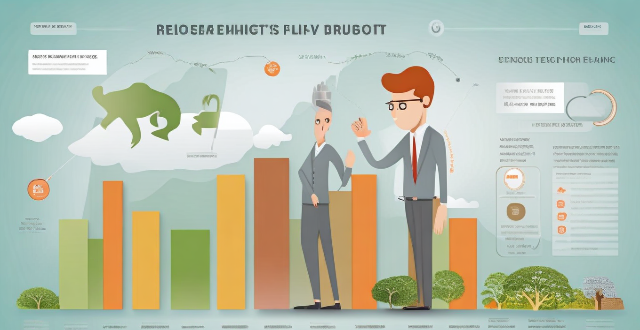
In what situations is it important to involve a financial advisor in budget planning ?
Involving a financial advisor in budget planning is crucial during significant life events, large investments, debt management, retirement planning, and tax planning. A professional can help develop a budget that meets short-term needs while achieving long-term goals.
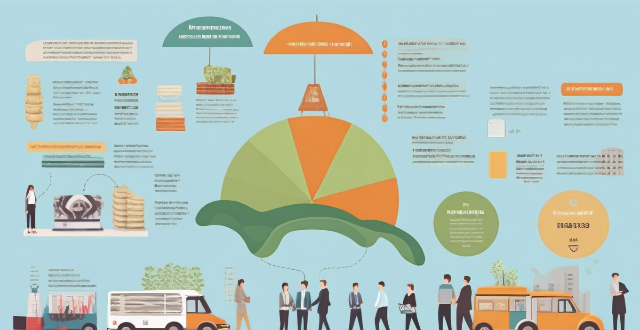
What is tax planning and why is it important ?
Tax planning is the process of organizing one's financial affairs to minimize tax liability and maximize after-tax returns. It involves analyzing current tax laws, understanding deductions, credits, and exemptions, and applying them to personal or business finances. Tax planning is important for legal compliance, maximizing wealth, avoiding surprises at tax time, retirement planning, estate planning, charitable giving, income management, risk mitigation, business strategy, international considerations, and peace of mind. It is an essential part of financial management for both individuals and businesses looking to build and preserve wealth over time.
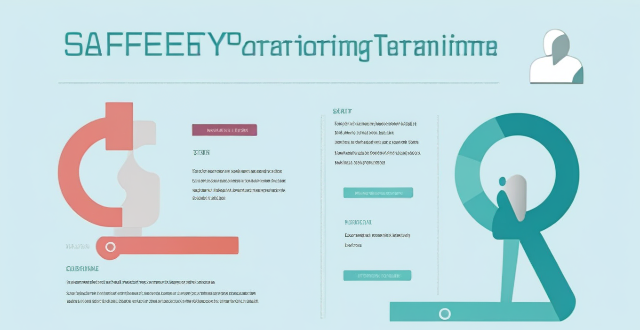
How can personal safety training be tailored to different risk levels and job roles within an organization ?
Personal safety training is crucial for protecting employees. Tailoring this training to different risk levels and job roles ensures that each employee receives the specific knowledge and skills needed for their work environment. This involves identifying risk levels, defining job roles, developing tailored training programs, incorporating practical exercises, and continuously updating and evaluating the training's effectiveness.

How might rising sea levels due to global warming affect coastal city planning ?
Rising sea levels pose a significant threat to coastal cities, necessitating comprehensive changes in urban planning. These changes include re-evaluating flood risk assessments, implementing coastal protection measures, updating land use planning, enhancing infrastructure resilience, and fostering community engagement. By adopting proactive planning strategies, coastal cities can mitigate the impacts of sea level rise and build more resilient communities for the future.

What is the best age to start retirement planning ?
Retirement planning is crucial for ensuring financial security and peace of mind in post-retirement life. The best age to start retirement planning varies depending on individual circumstances, but early adulthood (20-30 years old), mid-career (30-40 years old), and late career (40-50 years old) are all ideal times to begin. Early adulthood is advantageous due to the power of compound interest and habit formation. Mid-career offers higher income levels and family considerations. Late career allows for catch-up contributions and debt payoff strategies. Tips for successful retirement planning include creating a budget, building an emergency fund, diversifying investments, seeking professional advice, and staying informed on relevant changes.

How can climate services be integrated into urban planning ?
Climate services are vital for urban planning as they provide data on climate change impacts, aiding planners in making informed adaptation and mitigation decisions. Key steps include assessing climate risks like temperature changes and extreme weather events, enhancing resilience through strategies such as green infrastructure and energy efficiency, and integrating climate services into long-term planning processes. Collaboration, data collection, public education, and monitoring are crucial for effective implementation and refining of approaches over time.

What are some effective investment strategies for retirement planning ?
Retirement planning is a crucial aspect of financial planning, and it requires careful consideration of various investment strategies. Diversification helps reduce overall risk by spreading investments across different asset classes. Long-term investing takes advantage of compounding interest and allows for market fluctuations to even out over time. Dollar-cost averaging minimizes the impact of market volatility by investing a fixed amount regularly. Target-date funds offer a hands-off approach with automatic adjustments based on age and time horizon. Tax-advantaged accounts provide tax benefits that can help maximize retirement savings. By using these effective investment strategies, you can build a solid foundation for your retirement planning while minimizing risks and maximizing returns.

What are the consequences of not engaging in proper tax planning ?
Not engaging in proper tax planning can lead to financial penalties, legal issues, and missed opportunities for tax savings. Financial penalties include higher tax liability, late payment penalties, and interest charges. Legal issues may arise from audits and criminal charges. Missed opportunities for tax savings include forfeiting deductions and credits, inefficient retirement planning, and poor estate planning. Proper tax planning is crucial for minimizing tax liabilities, avoiding legal issues, and maximizing tax savings.

How often should I review and adjust my tax planning strategy ?
Tax planning is an ongoing process that requires regular review and adjustment to ensure that you are taking advantage of all available tax breaks and staying in compliance with the law. Here are some factors to consider when determining how often to review and adjust your tax planning strategy: - Major life changes such as marriage, divorce, having a child, buying or selling a home, starting or closing a business, or retirement should prompt a review of your tax planning strategy. - Changes in tax laws can significantly impact your tax liability, so it's important to stay up-to-date on any changes and review your strategy accordingly. - Even if nothing significant has changed in your life or the tax laws, it's a good idea to review your tax planning strategy at least once a year. - For businesses or individuals with complex tax situations, quarterly reviews may be beneficial to stay on top of any changes in income or expenses and make adjustments throughout the year to minimize tax liability.

How does climate change affect job opportunities in various industries ?
Climate change has a significant impact on job opportunities across various industries. In agriculture, changes in temperature and precipitation patterns can decrease crop yields, increase pest management needs, and create demand for water management professionals. Extreme weather events can create more work for construction workers involved in rebuilding and repair efforts, while the push towards sustainable building practices creates new job opportunities in green construction and design. The shift away from fossil fuels towards renewable energy sources like wind and solar creates new jobs in manufacturing, installation, and maintenance. Demand for energy-efficient buildings and appliances leads to job opportunities in design, engineering, and installation. As investors increasingly prioritize sustainability, there is a growing need for financial professionals who specialize in green investments. The risk of climate-related disasters affects the insurance industry, leading to job opportunities in risk assessment and underwriting. Increased temperatures and changes in weather patterns can lead to the spread of diseases, creating job opportunities in public health and disease control. Climate change can exacerbate mental health issues, leading to increased demand for mental health professionals. As tourists become more environmentally conscious, there is a growing need for professionals in conservation and ecotourism. The tourism industry must adapt to changing weather patterns, leading to job opportunities in planning and management. The transition to electric vehicles and other alternative fuels creates job opportunities in manufacturing, maintenance, and infrastructure development. Efforts to make transportation infrastructure more resilient to climate impacts lead to job opportunities in engineering and construction. The need for education on climate change creates job opportunities in curriculum development, teaching, and research. As industries adapt to climate change, there is a growing demand for training programs to equip workers with the necessary skills and knowledge. Governments around the world are developing policies to address climate change, creating job opportunities in policy development, implementation, and evaluation. The increased frequency of climate-related disasters leads to job opportunities in emergency response and management.